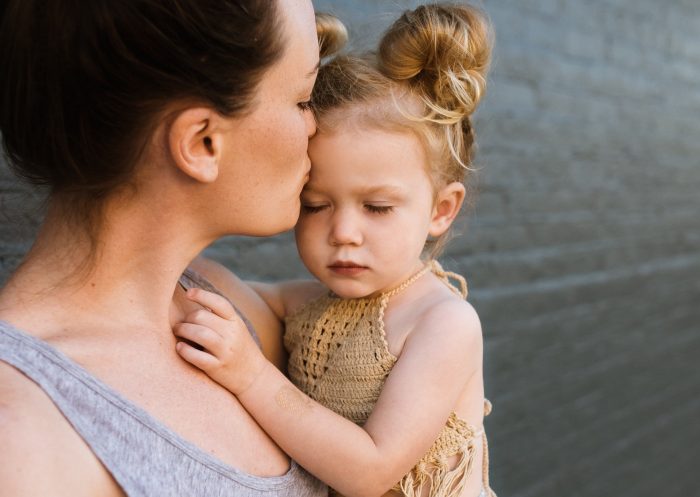D. None of the Above: The art of parenting in the dark
By Daniel Dunaief

When our children were young, we tried the Ferber method to encourage them to put themselves to sleep.
No, we didn’t abandon them in their room and return six hours later with a smile and a wink. We walked out of the room, told them to go to bed, and slowly extended the time before we returned.
It worked, although the complaints sometimes frayed our nerves to the point where we would argue about who drank the last of the milk, and I can’t even drink milk.
When the children got sick, all bets were off. Walking out of the room when they couldn’t breathe, when they had toxic sludge coming out of one or both ends, and when they had a fever was not an option for us, no matter how little sleep we’d had the night, week, or month before.
Once they recovered from their illness, however, we had to go back to the gradual Ferber method again, as they seemed to have forgotten that they might not need anything from us and that they should just close their eyes and go to sleep.
Parenting in the wake of the pandemic is a little like trying to figure out what role to play after the world has been sick for a few years and when we had to adapt whatever parenting rules we had established.
Do we tell them to “suck it up,” to “fend for themselves,” and to “tough it out,” or do we continue to offer support after they, and we, endured a new set of rules designed to keep us safe in the long term, but that caused all kinds of frustration in the shorter term?
Parenting always seems to have more questions than answers, but the number of questions and the frequency with which we ask them seems to have increased.
Indeed, even as our children have reached the age when we no longer have to strain our backs to make sure they don’t walk too close to the edge of a pool or to a rough surf, we still wonder what role, and how aggressively and consistently, we should play after the pandemic.
How many times have we wanted to agree with them in the last few years when they complained that “this isn’t fair?” Offering the reply, “who said life was fair,” didn’t seem appropriate, sympathetic or understanding. That response would only reinforce the reality that a year without graduation, proms, or downtime that didn’t involve a phone or a Monopoly board was definitely not fair.
Recently, I chatted with a parent in my neighborhood whom I haven’t seen in months. Within seconds, she shared her son’s recent tale of woe. Returning to the soccer field, he injured his leg badly enough that he’ll likely be out of action for soccer and several other sports for the next six months.
That, she said, is heartbreaking on top of all the time he missed on the field.
Amid all the concern for his physical well-being, she shared her worry about his mental health. She reached out to psychiatrist and psychologist friends, hoping to find someone with whom he might talk about yet another interruption in his plans to enjoy participating in a team sport.
To her dismay, she found that the mental health care system is as overburdened as the physical one was during the worst of the pandemic. Concerned about the context for her son’s life, she has dialed back her urge to encourage him to return to school on crutches, standing at the ready to bring him home whenever he feels physically and emotionally overwhelmed.
I completely understand that. At the same time, I wonder if and when we might deploy a safe Ferber-style approach after all the disruption of the last few years.







